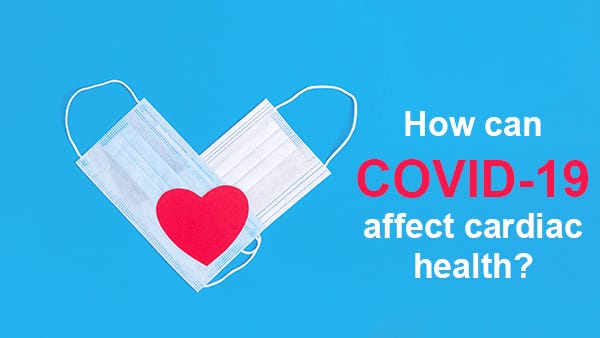Impact of COVID-19 on Cardiac Health in Young People
- Jan 29, 2021
- 0 Comments
February is American Heart Month, and with the rise of COVID-19, maintaining cardiac health has become increasingly important for people of all ages. While COVID-19 was originally thought to only impact the respiratory system, research has shown that it can also be detrimental to the cardiovascular system, even in young and healthy people.
|
Fast Facts about COVID-19 and Cardiac Health
|


When we think about cardiac arrest, we tend to associate it with older adults who suffer from a preexisting condition.However, pre-COVID-19, more than 7,000 children experienceda cardiac arrest event outside of the hospital each year. to Mayo Clinic, some of the reasons that sudden cardiac death occurs in young people are hypertrophic cardiomyopathy, coronary artery abnormalities and Long QT syndrome. Myocarditis, or inflammation of the heart, is also a concern for both age groups, causing about 75 deaths per year in teens and young adults ages 13-25. Oftentimes, people with this condition do not experience symptoms and never get properly diagnosed. Although they are an active group of people, young athletesare at an especially high risk for myocarditis and should be screened often to prevent an undetected diagnosis that could lead to sudden death.
The Effects of COVID-19 on Children and Young Adults
Even though COVID-19 has been around for about a year, it is a still a very new virus and many of its effects on young people’s health are still being studied. With new research and scientific advancements, physicians and scientists are starting to discover the virus’ potentially lingering impact.
According to the American Association for the Advancement of Science, during the first wave of COVID-19, cases of multisystem inflammatory syndrome (MIS-C), or Kawasaki-like disease, were observed in more than 1,000 children and adolescents. The illness includes a constellation of symptoms such as gastrointestinal symptoms, rash and conjunctival inflammation. These features, including signs of myocarditis, were confirmed in a lab by elevated markers of inflammation.
In another study that aimed to explore the effects of COVID-19 on student athletes and their cardiac health, JAMA and the Ohio State University tested 26 students who had previously had the virus and were either asymptomatic, or exhibited mild symptoms. These athletes participated in various sports including football, soccer, basketball, lacrosse and track. Through this study, researchers discovered that 30% of the tested students had heart damage, and 15% showed signs of myocarditis.
As students head back to school and sports, staying up to date with cardiac and COVID-19 research is key to ensuring that school personnel are prepared to help students in case of a cardiac event. Of course, having proper and well-maintained medical equipment like AEDs and resuscitation devices is also very important, especially if there is continued evidence that the virus can cause heart problems. According to the American Heart Association, children treated by an AED had a survival rate of 29.1%, versus a 23.7% survival rate of children who were not.
Despite concerns about contracting the virus and its effects, it is still crucial for parents to take their children to regular physicals and wellness checks. A recent study showed that 70- 80% of American children are missing their appointments because of the fear of being exposed to COVID-19 at the doctor’s office. Missed visits to the pediatrician can cause long-term problems because of delayed detection and diagnosis of chronic illnesses, or delayed treatment for common diseases.
Maintaining a child’s health through regular doctor visits, having an adequate number of AEDs and emergency equipment, and proper CPR training, will allow students to safely participate in physical activities in and out of the classroom. Even with COVID-19 and other health concerns, children and young adults need physical activity that can raise their heart rate and foster a healthy, active overall .
|
5 Tips for a Healthy Heart
|
Visit our website and check out our selection of AEDs and accessories here.
References:
https://www.ucsf.edu/magazine/covid-hearts
https://jamanetwork.com/journals/jamacardiology/fullarticle/2770645
https://www.myocarditisfoundation.org/about-myocarditis/
https://www.heart.org/idc/groups/heart-public/@wcm/@fdr/documents/downloadable/ucm_445071.pdf
https://www.heart.org/en/news/2018/11/09/defibrillators-may-help-kids-survive-cardiac-arrest
https://science.sciencemag.org/content/370/6514/286
https://health.clevelandclinic.org/5-things-to-do-every-day-to-keep-your-heart-healthy/
